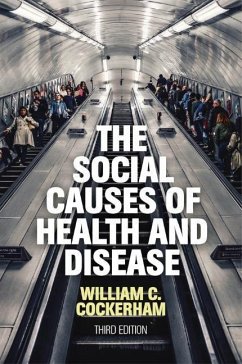
Planning for the Wrong Pandemic
Covid-19 and the Limits of Expert Knowledge
Versandkostenfrei!
Versandfertig in über 4 Wochen
59,99 €
inkl. MwSt.

PAYBACK Punkte
30 °P sammeln!
The fractious and disorganized governmental response to the coronavirus pandemic in the United States prompted many observers to ask why the country ¿ which had the knowledge, resources, and plans to deal with such an event ¿ was caught so unprepared when the crisis struck. In fact, as Andrew Lakoff shows, US officials had been planning for a pandemic for more than two decades, and many of these plans were implemented in the early stages of the pandemic. As authorities responded to the crisis, they relied on an already formulated set of concepts and tools that had been devised for managing a...
The fractious and disorganized governmental response to the coronavirus pandemic in the United States prompted many observers to ask why the country ¿ which had the knowledge, resources, and plans to deal with such an event ¿ was caught so unprepared when the crisis struck. In fact, as Andrew Lakoff shows, US officials had been planning for a pandemic for more than two decades, and many of these plans were implemented in the early stages of the pandemic. As authorities responded to the crisis, they relied on an already formulated set of concepts and tools that had been devised for managing a future emergency. These preexisting tools enabled officials to make sense of the event and to rapidly implement policies in response, but they also led to significant blind spots. What did these planning tools allow officials to see, and what did they hide from view? And, as we assess the failures in our response to the pandemic and attempt to prepare for "the next one," to what extent should we take for granted the capacity of these tools to guide future interventions effectively?












